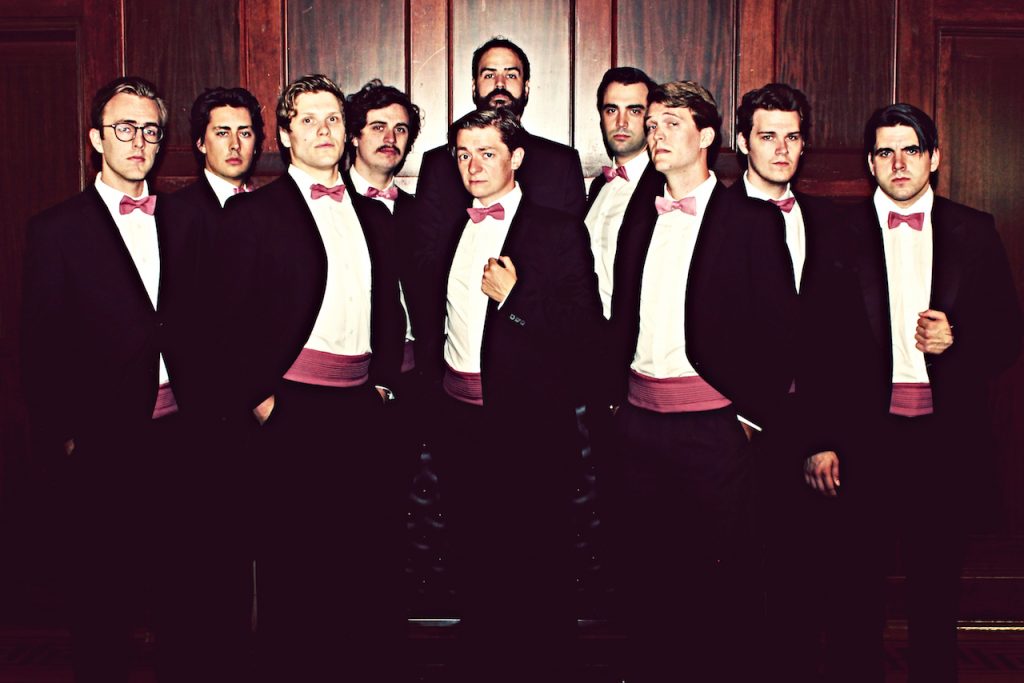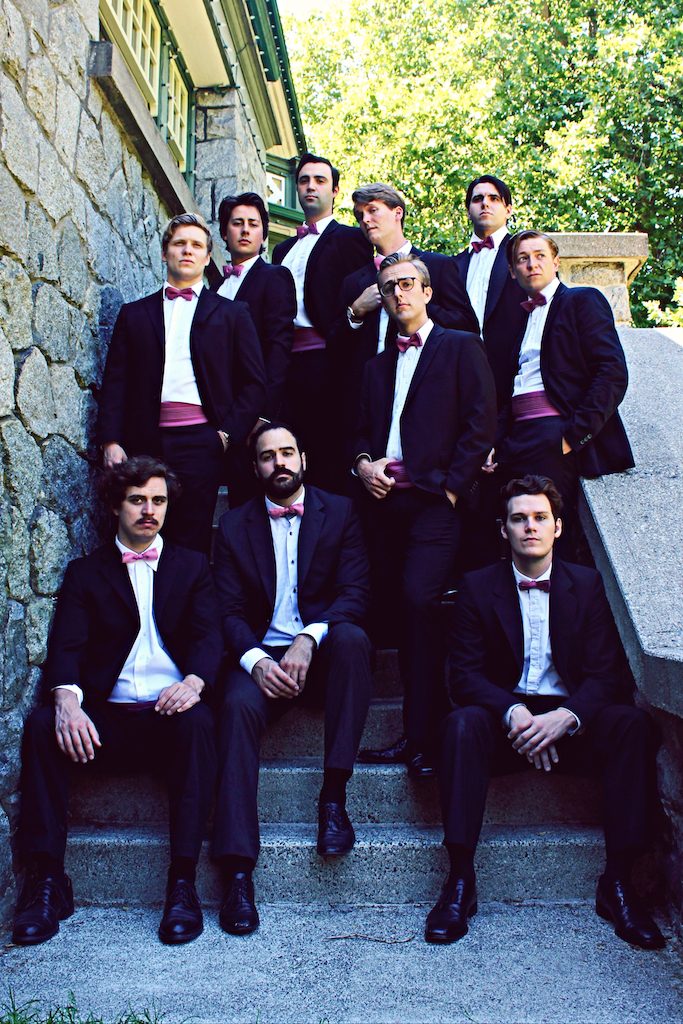
Credit: Allyson Fournier
At Performing Arts Lodge (PAL) until September 29, 2017
Fightingchanceproductions.ca
Posted September 23, 2017
It doesn’t happen very often to me in the theatre but I had a couple of adrenalin rushes during Posh, written by British playwright Laura Wade in 2010. Directed by Allyson Fournier for Fighting Chance Productions (FCP), Posh takes a while to get into; we don’t know who these ten guys in tails and rose-coloured cummerbunds are and we couldn’t care less. They’re just a bunch of privileged Oxford undergraduates, members of a dining club, out on a lark. And we don’t have a centuries-old men’s club culture in which the school tie you wear dictates whether you get into the club or not. At first blush, Posh – loosely based on the more than two hundred year old Bullingdon Club – doesn’t appear to be all that relevant.
But from the outset, there’s a rivetting undercurrent of impending violence. The club is called the Riot Club, named after some 18th century hell-raiser; the aim of the club’s members is to rent a dining room in a less-than-upscale ‘gastropub’ – a pub that aspires to providing food beyond a ploughman’s lunch, get wasted, “chateau-ed” (as these toffee-nosed gits say), wreck the place and then pay for the damage on the spot and in cash.

Act 1 sets the scene and we get it: these young men with their overwhelming sense of entitlement and underdeveloped sense of ethical behaviour are going to be the movers and shakers, the entrepreneurs and politicians of the coming decades. By the middle of Act 1, they are well on their way to being drunk, have abused the publican’s daughter Rachel (Mariela Shuley) and are furious that the “ten-bird roast” they ordered has only nine birds in it; “We paid for a ten-bird roast,” they rage at the publican (Michael Shewchuk). It’s ugly.
And then Charlie (Caroline Doyle), the prostitute arrives. That’s the first adrenalin rush.
By the beginning of Act 2, Allyson Fournier’s elegant dining table set complete with wine glasses and teal-coloured napkins, has deteriorated just as the guests have. One of the puke bags, distributed earlier, has already been used. Rachel comes to clear the table and the drunks get abusive; second adrenalin rush. Ugly gets uglier.
And then what is clearly playwright Laura Wade’s focus of the play, and to which all the action has led, occurs: Alistair Ryle (Riaan Smit) goes on a verbal rampage. Aptly named Ryle (‘rile’) begins to spew venom: “I’m sick to death of fucking poor people” – with its clever double entendre. About immigrants: “It’s not their history”, “They’re all obsessed with fucking upward mobility” and “All this shit about respecting other people’s culture.”
Suddenly, Posh is a little more relevant as our own middle class struggles to keep up, the gap between rich and poor widens and concerns about immigration are rampant.
The concluding scenes of Posh are scorchers as we see the ‘all for one, and one for all’ sensibility descends into ‘every man for himself.’
This is ensemble playing at its best. Each character is well defined including the totally inebriated Toby (Cole Howard), the exuberant sportsman Harry (Kelly McCabe), the apologetic Dmitri (David Z. Cohen) but especially Riaan Smit as Ryle. His is a virtuosic performance: staggering on the table amidst the remains of the dinner and waving his fists, he delivers a spit-spewing, steady stream of vitriol.
In an interview, playwright Wade said, “We love watching rich people behave badly. It has a sort of grisly fascination.” But Posh is more than grisly fascination; it’s a cautionary tale about entitlement and abuse of power. In that respect, Posh is both highly relevant and harrowing. You just have to deal with the surges of adrenalin that come with it.

